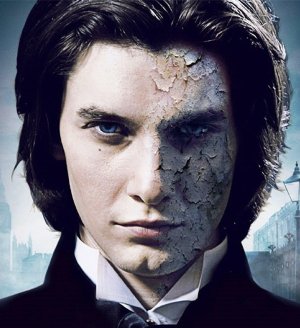This review may contain spoilers
Not as Intense as I wanted it to be.
I am only adding my voice to this movie because I recently watched Ryohei Suzuki at the NYAFF say he was curious about what we thought about this movie (good things & bad things) and i appreciated that he said that. So these are my thoughts and views.
The Egoist was kind of average, for me even the love story was somewhat unremarkable, maybe because less time was spent on the development of the romance between the MLs. Was it real love or transactional love?,from the novel we know it was real love but from the movie it was not so clear. At times I found Suzuki Ryohei's mannerisms a little too much and are stereotypical of "gay people". His hands moved but his body looked stiff,I would have to say the way Ryohei crossed his legs and sat on the couch and tried to be affectionate just came off as stiff and forced IMO. He wasn't bad, but he wasn't that convincing to me either.Their love scenes were very hot, but I feel like I needed more emotional depth, by exploring why he felt so lonely in this world before Ryuta and just how Ryuta influenced his life. Everything felt rushed.
The most memorable thing for me from the movie, were the conversations that he had with his circle of friends talking about being gay in Japan. My best moment being when t the other friends confess that they went to collect a marriage registration form and filled it out, though same-sex marriage is not legal in Japan. That act of rebellion was memorable for me.
Overall , Dear Tenant and Eternal Yesterday actually came to my mind when watching the Egoist. But both DT and EY were very persuasive in their execution and emotional story-telling in my opinion. They all revolve around love,death and unintentional family, learning to say goodbye to those who have left, some unresolved grief.
DT and Egoist share the same themes of love,death and unintentional family bond that involved the mother of the partner. Though DT has wider family dynamic issues (uncle,child of partner etc). Both partners pass away and the other partner becomes a sort of replacement son for the mother-in-law (for the lack of a better word) with differing degrees of sadness and success. Both bonds are formed either by guilt or kinship for the shared dead partner of the mother. At the heart of both stories is the concept of family & the question of what is family?.
The Egoist was kind of average, for me even the love story was somewhat unremarkable, maybe because less time was spent on the development of the romance between the MLs. Was it real love or transactional love?,from the novel we know it was real love but from the movie it was not so clear. At times I found Suzuki Ryohei's mannerisms a little too much and are stereotypical of "gay people". His hands moved but his body looked stiff,I would have to say the way Ryohei crossed his legs and sat on the couch and tried to be affectionate just came off as stiff and forced IMO. He wasn't bad, but he wasn't that convincing to me either.Their love scenes were very hot, but I feel like I needed more emotional depth, by exploring why he felt so lonely in this world before Ryuta and just how Ryuta influenced his life. Everything felt rushed.
The most memorable thing for me from the movie, were the conversations that he had with his circle of friends talking about being gay in Japan. My best moment being when t the other friends confess that they went to collect a marriage registration form and filled it out, though same-sex marriage is not legal in Japan. That act of rebellion was memorable for me.
Overall , Dear Tenant and Eternal Yesterday actually came to my mind when watching the Egoist. But both DT and EY were very persuasive in their execution and emotional story-telling in my opinion. They all revolve around love,death and unintentional family, learning to say goodbye to those who have left, some unresolved grief.
DT and Egoist share the same themes of love,death and unintentional family bond that involved the mother of the partner. Though DT has wider family dynamic issues (uncle,child of partner etc). Both partners pass away and the other partner becomes a sort of replacement son for the mother-in-law (for the lack of a better word) with differing degrees of sadness and success. Both bonds are formed either by guilt or kinship for the shared dead partner of the mother. At the heart of both stories is the concept of family & the question of what is family?.
Was this review helpful to you?
























